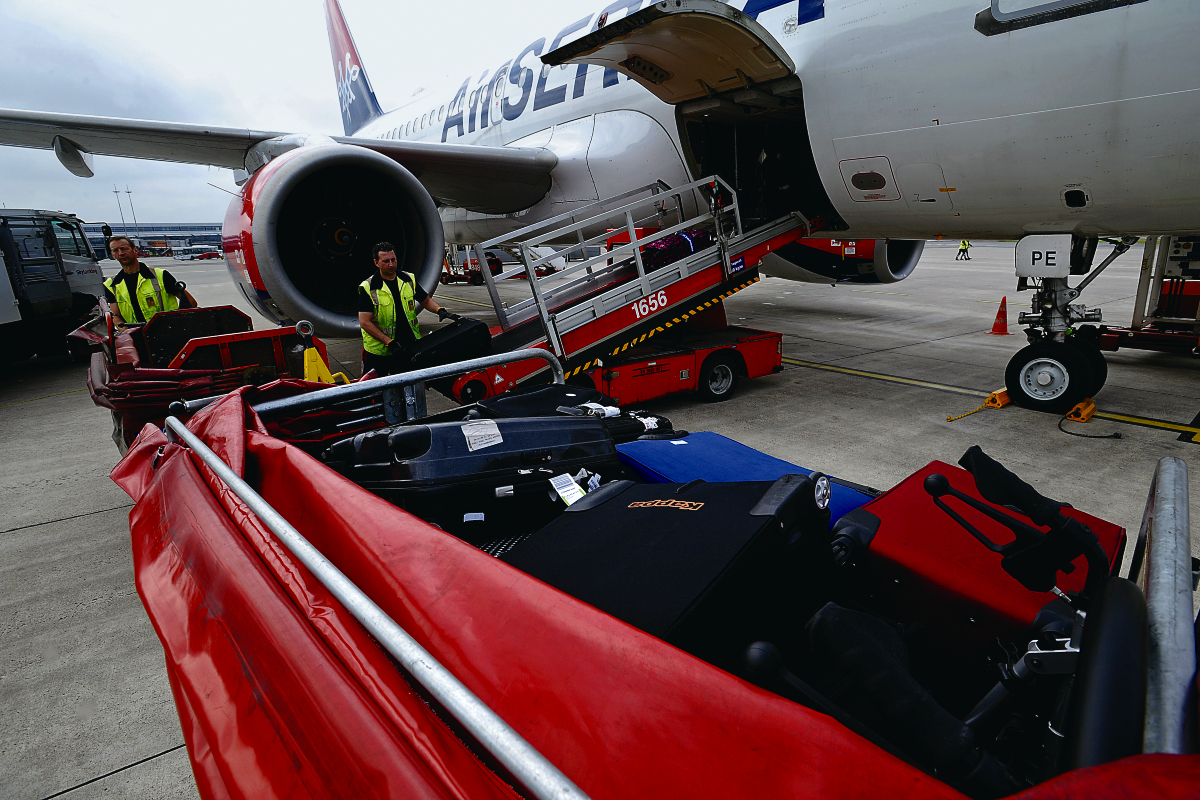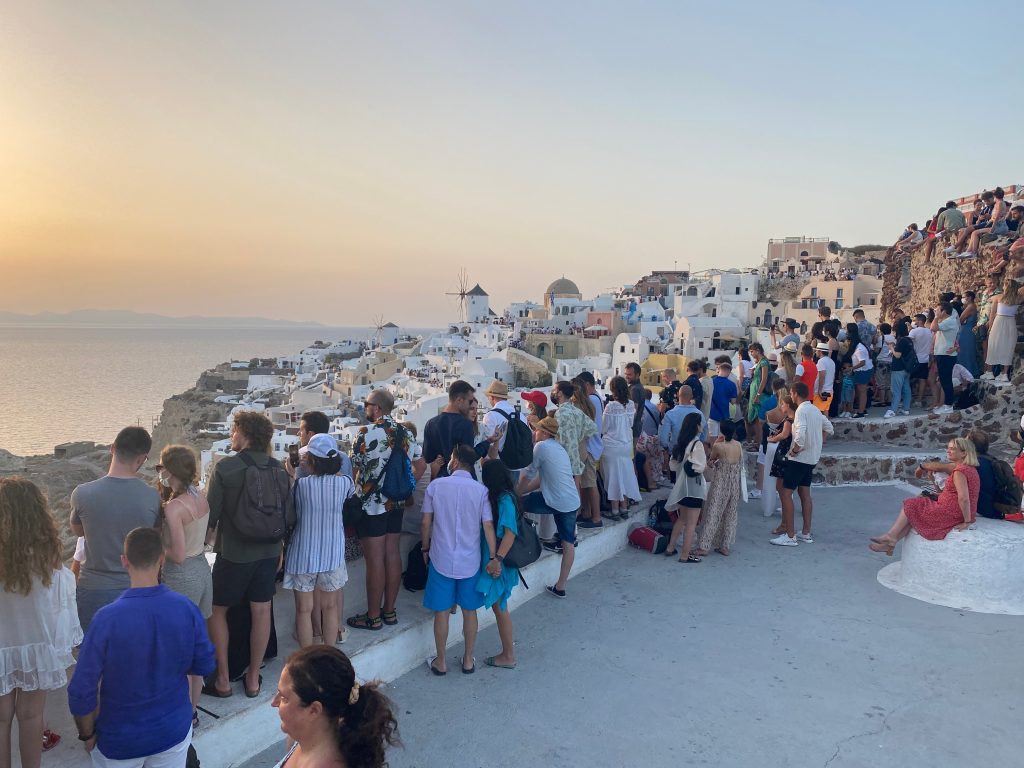Travelers should take the same care in planning how they will bring their bag as they do in booking their flight.
Baggage fees are changing and rising across the industry. Today, checking one bag on United Airlines , American Airlines , Delta Air Lines and Alaska Air will cost you at least $35. A second bag is another $45, at minimum. Some budget airlines also charge for carry-ons.
Spirit Airlines and Frontier have long used dynamic pricing for their checked-bag fees, where the cost can vary widely depending on the route and when you book. JetBlue Airways recently moved in this direction, too. Airline analysts and consultants say more airlines, including major players, are likely to join them.
The rising complexity and cost come as more airlines unbundle their prices for different elements of the flight. Meals are long gone. You might have to pay extra for your seat of choice. Airlines say it allows travelers to pick what they want to spend on. But it also means travelers who hyperfocus on airfare can lose out by not considering the total cost.
“We hunt for the lowest airfare, and then we take a $50 taxi to the airport,” said Samuel Engel , senior vice president at consulting firm ICF .
There are a few workarounds. Pay for bags as early as possible. Fliers on American, United and JetBlue will pay more if they wait too long.
Passengers can also save by reading the fine print. Airline credit cards and having status often waive baggage fees for the first checked bag.
Why do airlines love charging for bags?
Checked bags used to be included in the cost of tickets. Budget carriers such as Spirit and Allegiant led the way in charging for checked bags. Spirit introduced a fee for them in 2007, and major carriers couldn’t resist following suit .
Bag fees are lucrative: They generated almost $7 billion in revenue for U.S. airlines in 2022, the most recent year of federal data. Last year’s figure was on track to outpace that.
Some airlines attributed the most recent increases to their own rising costs. Carriers are having to shell out for costlier fuel and higher salaries. And it is tough for airlines to raise fares without a rival swooping in to undercut them, said Engel.
There is also some tax advantage to the bag fees. Unlike fares, those fees aren’t subject to a 7.5% federal ticket tax.
JetBlue is tinkering with luggage fees as part of its efforts to become profitable again. Last month, it changed its baggage pricing for the third time this year, trying out a strategy that budget rivals have embraced: surge pricing.
Now, JetBlue fliers will pay a higher price during high-demand periods such as spring break, summer and winter holidays. During those busy times, checking a bag at the airport for a domestic flight will cost as much as $50, which is $5 more than the off-peak price. Paying in advance saves $10.
So far, other big airlines haven’t followed, but some analysts predict dynamic pricing will become the norm for bags fees.
“It will be standard practice for the vast majority of airlines within three to five years,” said Jay Sorensen , president of IdeaWorksCompany, a consulting firm.

What does your bag fee get you?
Airlines have in many cases added tracking capabilities allowing passengers to follow their bag’s progress for peace of mind.
And most airlines are less likely to lose or mishandle your bag than they used to be. Out of every 1,000 bags checked last year about 5.8 were mishandled by major U.S. carriers , according to Transportation Department data. That is compared with 6.4 bags per 1,000 in 2022.
Risks remain.
Kaitlin King , a 35-year-old administrative assistant from Santa Cruz, Calif., had bags waylaid on two different airlines last year. Both times, her bags were eventually returned, and she said she hasn’t given up on checked luggage.
“I’ll be honest, when you’re going through the airport, it just sucks to have your bag with you,” she said. “If I can pay someone to do it for me, I probably will.”
The fee dodge
Less than half of American Airlines passengers check bags, and less than half of those who do actually pay for it, said Scott Chandler , American’s senior vice president of loyalty and revenue management.
Passengers with elite status and those booking some premium cabins are eligible for at least one free bag. At American and other airlines, carrying a co-branded credit card can often get you out of baggage fees.
“We have so many different ways that you can be exempted from bag fees,” Chandler said earlier this year.
Southwest Airlines offers two free checked bags. The carrier has said that gives it an edge over rivals, and executives have repeated over the years that they have no plans to change the policy.
The carry-on crunch
One side effect of bag fees has been a heightened love affair with carry-ons.
Some travelers have wondered if it would make more sense to charge for carry-ons to reduce time waiting for other passengers maneuvering clunky suitcases into bins.
Some budget airlines, however, charge as much or more to bring a bag aboard the plane than they do to check it. There was blowback when Spirit first announced that policy in 2010. Ben Baldanza , who was Spirit’s chief executive at the time, defended the policy and said it worked to speed up the process of getting on and off the plane.
American, United and others are scrambling to supersize overhead bins to fit more carry-ons, though more spacious storage isn’t yet universal.
Three final tips
Write to Alison Sider at alison.sider@wsj.com and Allison Pohle at allison.pohle@wsj.com



